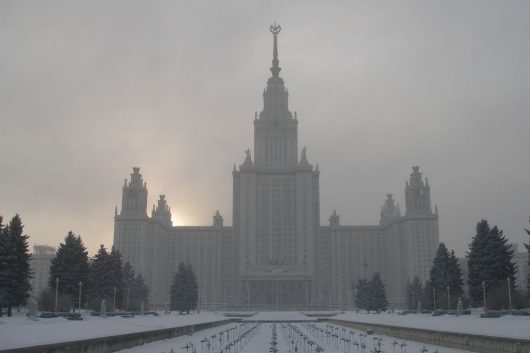Four Facts About Higher Education in Russia

Russia seems to constantly struggle with one political or economic issue after another. It is important not to forget education in the chaos. Here are a few salient facts about higher education in Russia and how it affects the growing number of people living in poverty.
- Entrance exams: As in many countries, students in Russia must take a unified state exam to enter university. This system has pros and cons. The exams are extremely competitive and force teachers in secondary school to “teach to the test” to ensure students can pass exams. However, doing so leads to problems later on when students must spend time in university relearning material they should have learned in high school.
- Changing demographics: Until the mid-1990s, universities were comprised mainly of well-to-do urban young adults. After reforms were made, enrollment expanded, and in the early 2000s, universities became more popular among the masses. Lately, however, Russia’s gap between the rich and poor has been growing. Nearly 20 million Russians currently live in poverty, and the poverty rate has increased by 20% since last year. Consequently, history is beginning to repeat itself, with a more socioeconomically homogeneous student body developing in universities.
- Right to free education: According to the Russian Federation Constitution, all Russian citizens have a right to free education. Russia’s 2013 Law of Education ensures that state governments enforce this right. The right to free education is granted on a competitive basis based on grades from the Unified State Exam.
- Government spending is low: Only about 4 percent of Russia’s GDP goes toward education, according to the latest U.N. Human Development Report. Compared to other countries with consistently high-ranking education systems, Russia’s spending on education is low. Finland, for example, spends 6.8 percent of its GDP on education.
Increased government spending on education, as well as more well-rounded secondary education, could greatly benefit higher education in Russia and the nation as a whole.
– Sabrina Yates
Photo: Flickr
